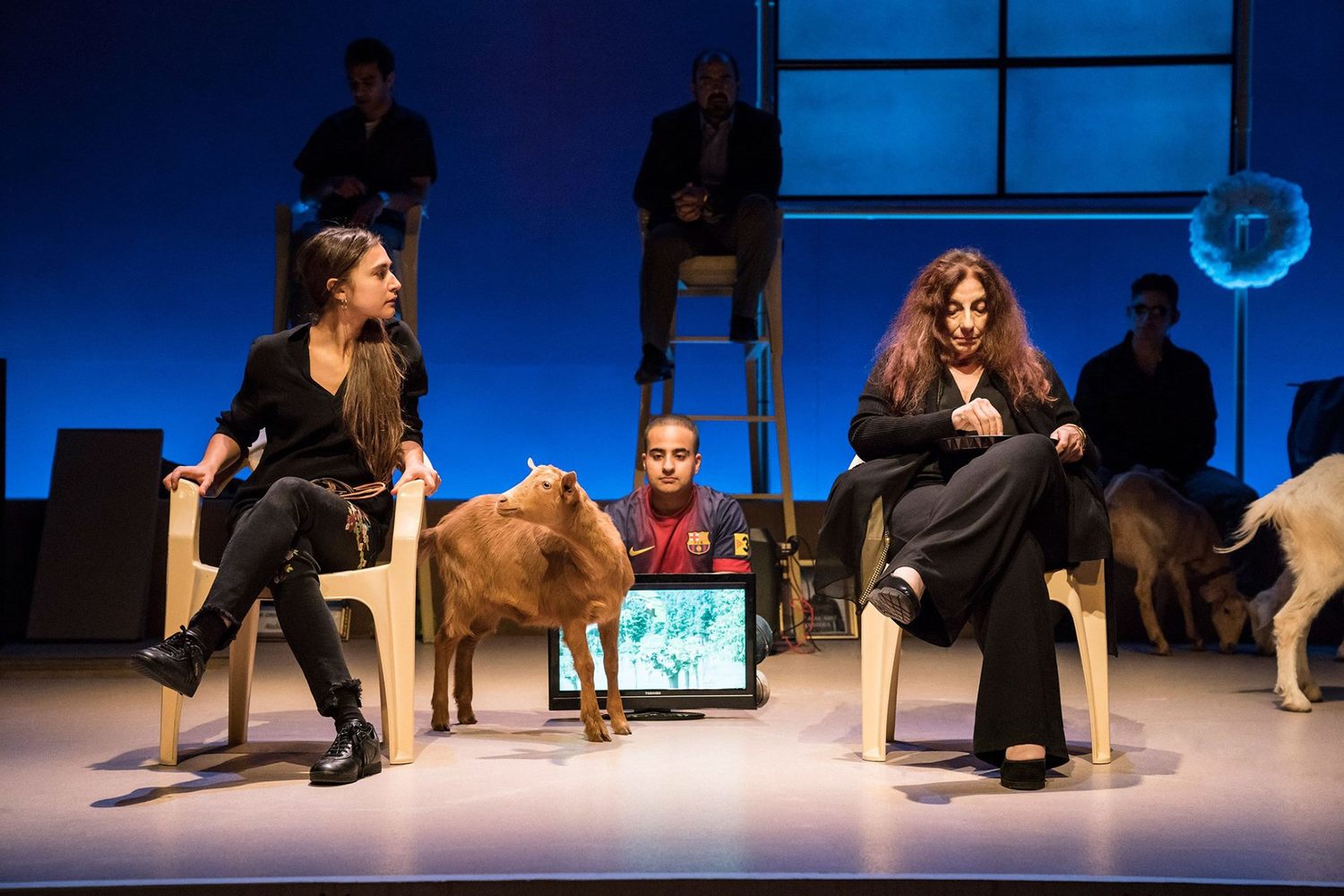Review: GOATS, Royal Court

![]() "Has anyone ever told the truth?"
"Has anyone ever told the truth?"
"Has anyone ever demanded it? Does anyone want it? Does anyone even need it?"
Fascinated by war's absurdity, playwright and documentary filmmaker Liwaa Yazji started journaling into her notebook all that she saw around her. Armed combat, civil war and terror - it's these painful details that form a part of everyday life for people in Syria.
Goats is an incredibly detailed investigation into violence and terror, with Yazji exploring how we constantly normalise the surreal. A bleak and humorous story of propaganda, grief and struggle, the play introduces the audience to a world they may not be familiar with.
Bodies pile up in the town and people mourn the loss of their fathers, brothers and sons. In an attempt to rid the area of grief, a local party leader creates a radical compensation scheme: to give out a goat to each family who has lost someone.
The stage is filled with real goats, which wander around without a care for the dramatic action. Their bleating and lack of awareness proves to be distracting for the audience, which is precisely the point: this is exactly the reason they have been given to the villagers - to preoccupy their thoughts with the animal instead of the lost soldiers.
Do the goats cheapen the memory of the dead, or do they benefit the wellbeing of those that are left behind? The townsfolk's suffering seems to be constant, so perhaps the animals are a welcome distraction. The goats are a metaphor for the villager's choice - do they accept the official story of how the war is playing out, or challenge it at a potential personal cost?
To a Western audience the play may seem shocking, but Yazji has based this all on her real life experience. The characters may be fictional, but the narrative is factual.
Unfortunately, despite the best will in the world, the performance struggles. Poor characterisation, lack of energy and many line slip-ups all contribute to a dull atmosphere.
Added to this is impractical design by Rosie Elnile. The set is clunky and the actors find difficulty in moving it around. It's a shame that Hamish Pirie's production isn't executed as well as it should be. But despite all this, Yazji's intention still penetrates through - despite struggling to maintain focus, you don't totally lose attention.
Throughout the play, propaganda is rife, and the residents of the village live in fear of upsetting their nation's leader. It's dangerous for them to be open about their opinions on war in public, and this is the way of life for many Syrian people. Propaganda has an ability to warp perspective and twist reality. What should we believe?
A character puts this into perspective for us. "If we keep learning stuff that's the opposite of the last thing we learned, how am I supposed to know which one's right?"
Goats at Royal Court until 30 December
Photo Credit: Johan Persson
Reader Reviews
Videos

